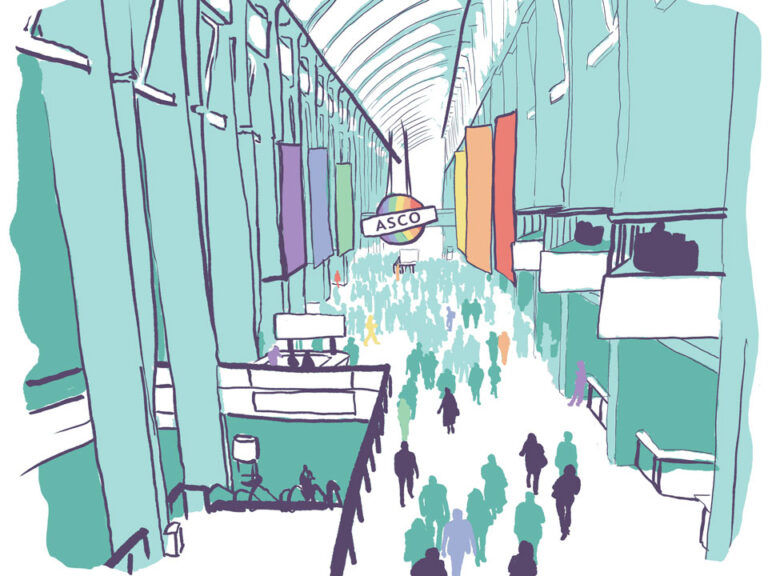Don Dizon, director of the Pelvic Malignancies Program at Lifespan Cancer Institute, head of community outreach and engagement at Legorreta Cancer Center, and director of medical oncology at Rhode Island Hospital, spoke with NFN Scout, executive director of the National LGBT Cancer Network, on Your Stories: Conquering Cancer podcast.
In this episode, published June 25, 2021, Dizon and Scout discuss a need for data on cancer survivors who are members of the LGBTQ+ community—and how oncology can serve as an ally.
“One of the saddest things we hear is when we hear from a survivor who says that they didn’t bring their partner because they were afraid,” Scout said. “And cancer is such an experience where you need all the support you can get.”
Listen to this podcast on the Cancer History Project:


Learning What We Don’t Know: Podcast Interview with Dr. Don Dizon and NFN Scout
By ASCO, Sept. 29, 2021
Why representation matters. Why pronouns matter. And why it matters more than ever for patients with cancer from LGBTQ+ communities to be counted and welcomed.
Scout, MA, PhD, executive director of the National LGBT Cancer Network, tells host Dr. Don Dizon why he believes dismantling the implicit bias LGBTQ+ patients often face begins with doctors and allies asking the uncomfortable questions and feeling comfortable admitting when they “just don’t know what they don’t know.”
This column features the latest posts to the Cancer History Project by our growing list of contributors.
The Cancer History Project is a free, web-based, collaborative resource intended to mark the 50th anniversary of the National Cancer Act and designed to continue in perpetuity. The objective is to assemble a robust collection of historical documents and make them freely available.
Access to the Cancer History Project is open to the public at CancerHistoryProject.com. You can also follow us on Twitter at @CancerHistProj, or follow our podcast.
Is your institution a contributor to the Cancer History Project? Eligible institutions include cancer centers, advocacy groups, professional societies, pharmaceutical companies, and key organizations in oncology.
To apply to become a contributor, please contact admin@cancerhistoryproject.com.









